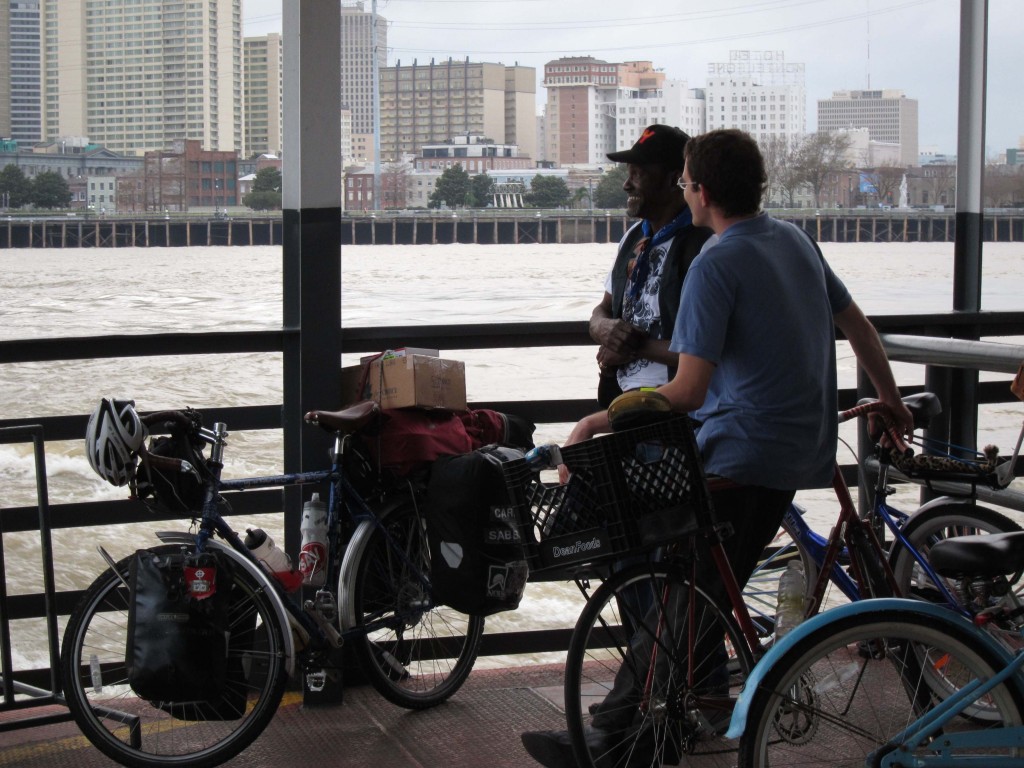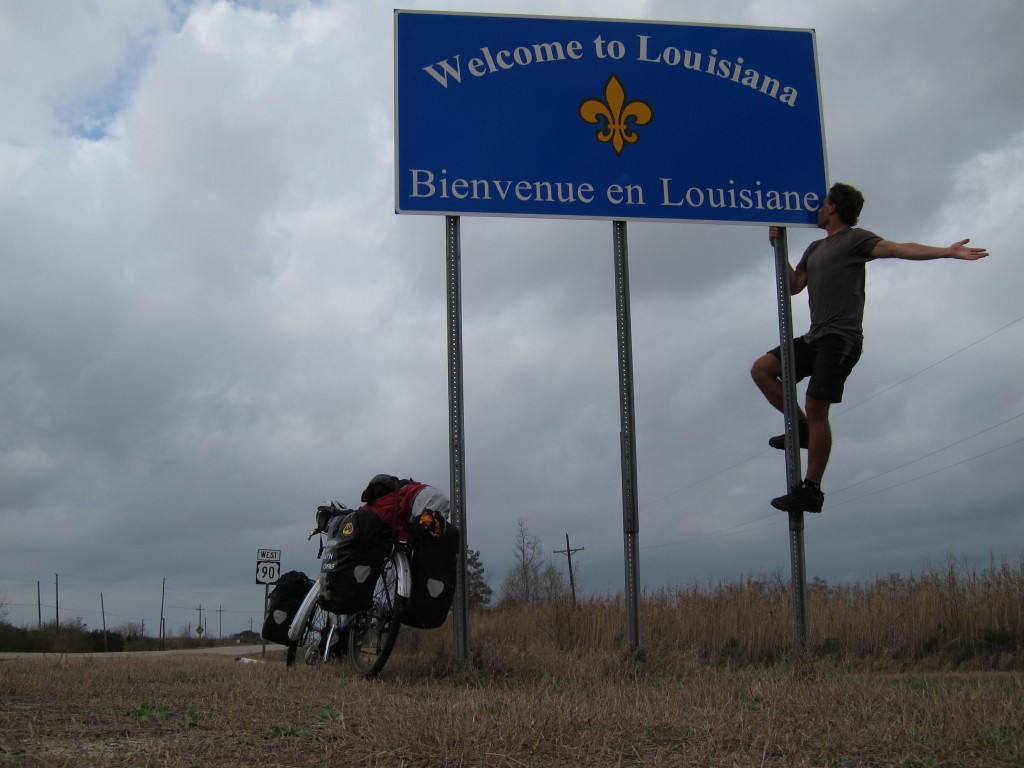31 Jan, 2012
There is no city in the world like New Orleans. Yes, Havana and Salvador have similarly crumbling buildings and living musical heritage. But New Orleans is attached to a country whose affluence often renders such qualities innocuous. We keep culture alive in nostalgia after safely setting it in the vaulted past. Not so in this cosmopolitan den. The music that forms our national identity started here and continues to live, breed, evolve and flourish here. The architecture defies its age by housing, feeding, and treating people from all over the world– including those who have roots stretching back two or three centuries. After traveling around the States for eight months, I have arrived in an alternate America—one linked by water, fragility, and culture to the world far beyond our borders.
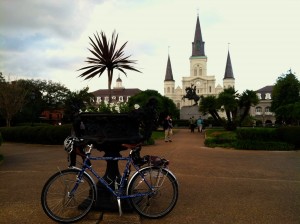
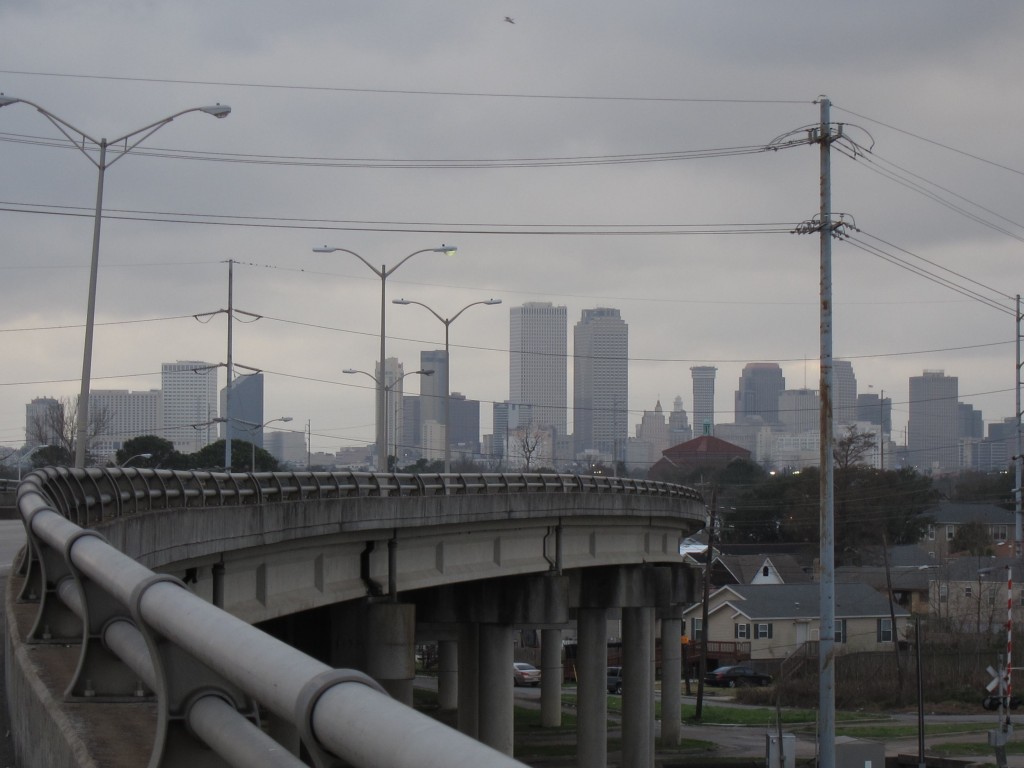
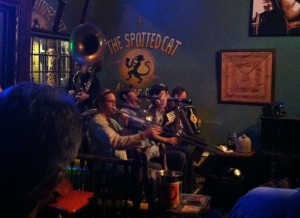 I’ve been looking forward to my arrival in New Orleans since I started planning this trip. By August, I was already singing “Do You Know What It Means to Miss New Orleans.” It wasn’t just because I had planned a winter pause. It wasn’t just a familiar city that is full of good music and interesting people. The Carbon Sabbath is rooted in the recent history of New Orleans. We all know about Katrina and its effects on the beloved Crescent City. However, it’s all too easy to forget the implications of that storm.
I’ve been looking forward to my arrival in New Orleans since I started planning this trip. By August, I was already singing “Do You Know What It Means to Miss New Orleans.” It wasn’t just because I had planned a winter pause. It wasn’t just a familiar city that is full of good music and interesting people. The Carbon Sabbath is rooted in the recent history of New Orleans. We all know about Katrina and its effects on the beloved Crescent City. However, it’s all too easy to forget the implications of that storm.
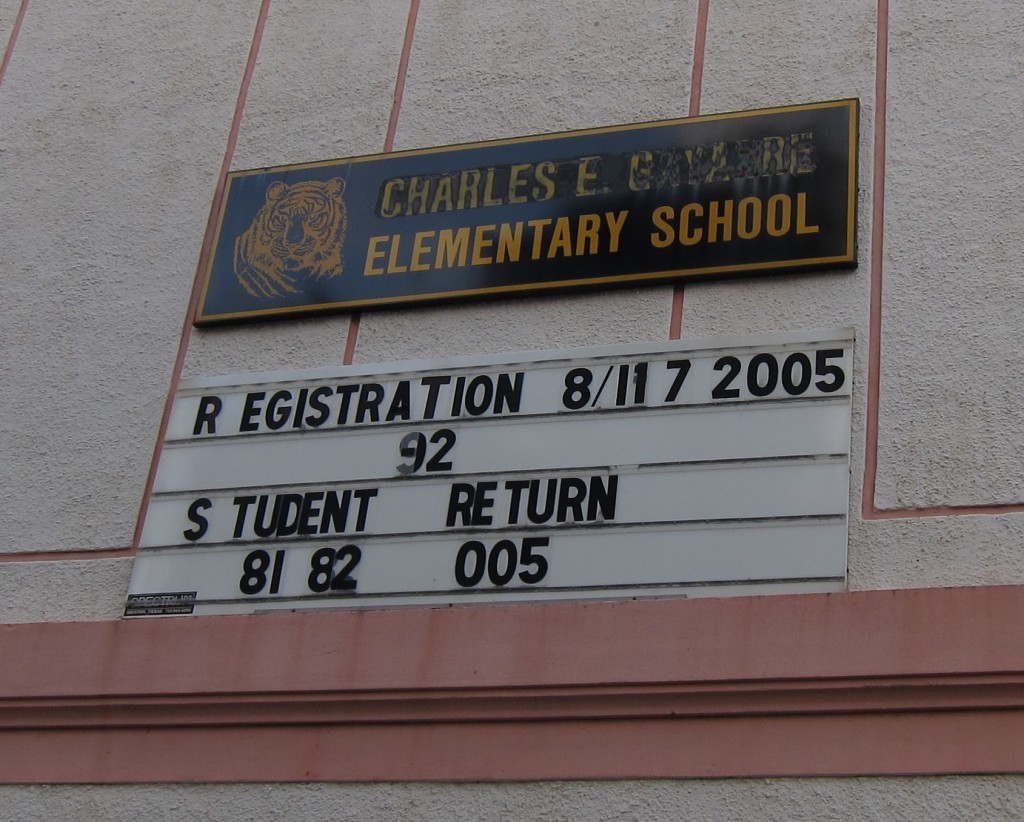 Perhaps the greatest lesson we have from Katrina is the danger of hubris. In the United States, our wealth and modern conveniences give us the impression that we can bear any disaster. Yes, we will occasionally suffer the loss of major buildings or see a small town laid low by the forces of nature, but for the most part, we believe in the immortality of our cities. We think, “This is the United States of America. There is nothing we can’t do.” While there is some truth in that, there is more danger than truth.
Perhaps the greatest lesson we have from Katrina is the danger of hubris. In the United States, our wealth and modern conveniences give us the impression that we can bear any disaster. Yes, we will occasionally suffer the loss of major buildings or see a small town laid low by the forces of nature, but for the most part, we believe in the immortality of our cities. We think, “This is the United States of America. There is nothing we can’t do.” While there is some truth in that, there is more danger than truth.
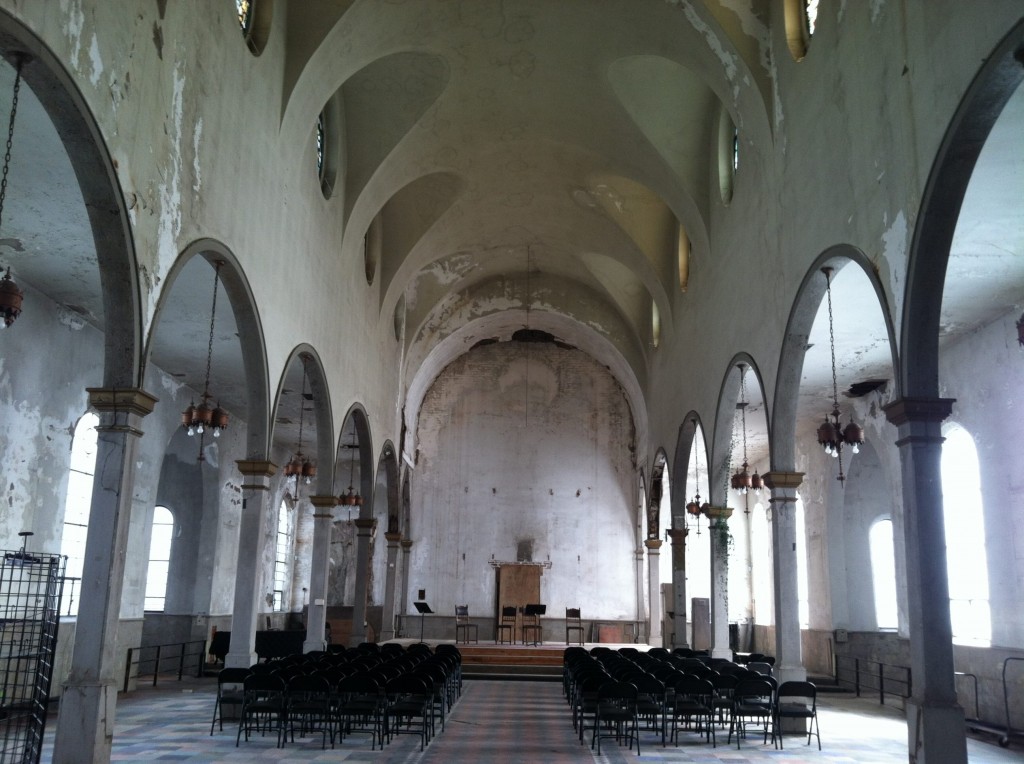
The once abandoned Holy Trinity Church is being converted into Marigny Opera House, which will be an acoustic music venue and setting for plenty of other great things including episodes of the HBO TV series True Blood coming soon.
One of the dangers in addressing the suffering we can anticipate with climate change is the assumption that we will be able to deal with the problems when they arise. Generally, that is the case. But anyone who saw the aftermath of Hurricane Katrina should know better. Our hubris ties the hands that should be working to prepare for the severe challenges in infrastructure and agriculture we can anticipate as associated with climate change. Like rising flood waters, the effects of climate change creep upon the inattentive and ignorant but are by no means invisible. Will we deny them, or will we respond now to the suffering we know to be in our future?
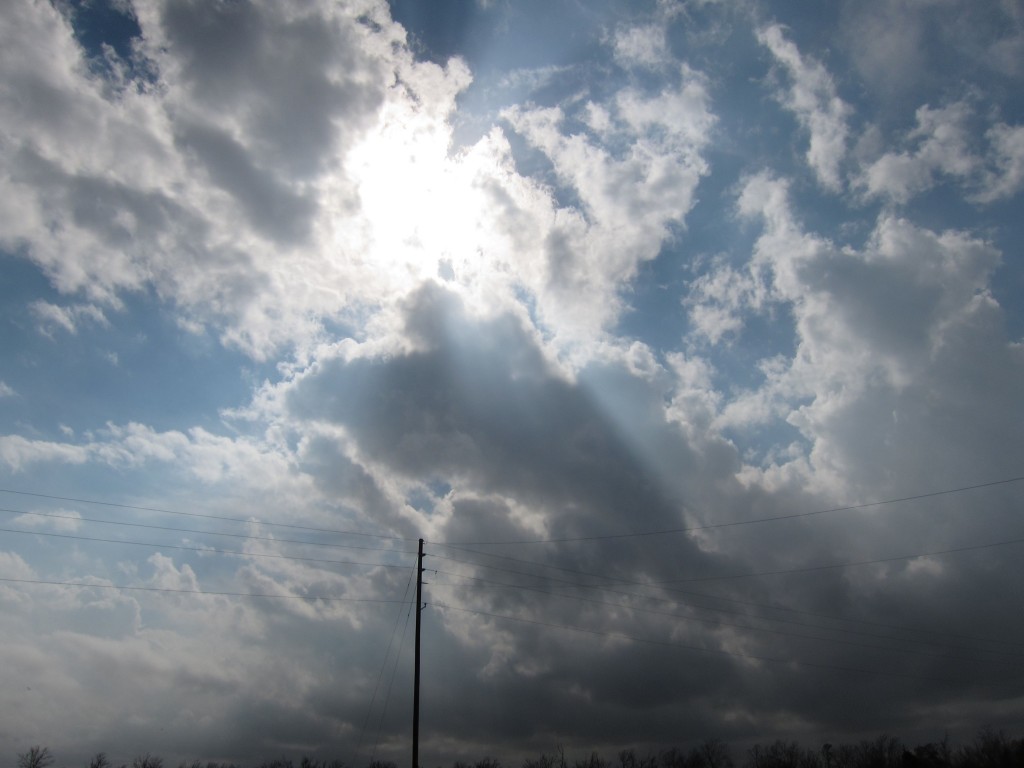 For the past few days, I’ve been staying with my friend Patrick (as seen in the picture above talking to our new buddy on the Algiers ferry) whose brother Trip is a close compadre from undergrad. Patrick has a place on New Orleans’ west bank that could be generously described as a fixer-upper. However, it has the warmth of good company and a friendly dog named Lucas whose Catahoula ancestry supposedly ties him in part to the canines of Lousiana’s Native Americans. He has roots. Anyway, one of the luxuries about this house is that it has no hot water, gas, or heating/cooling. This is truly a luxury in that it makes me mindful of the water I use for bathing. Every morning, my routine involves warming water to collect in pitchers for cleaning. As I pour the water over me, I am more aware of the amount of water it takes to get clean and the energy it requires to warm it to a comfortable temperature. This is a gift, and I feel cleaner because I know how clean I’ve become.
For the past few days, I’ve been staying with my friend Patrick (as seen in the picture above talking to our new buddy on the Algiers ferry) whose brother Trip is a close compadre from undergrad. Patrick has a place on New Orleans’ west bank that could be generously described as a fixer-upper. However, it has the warmth of good company and a friendly dog named Lucas whose Catahoula ancestry supposedly ties him in part to the canines of Lousiana’s Native Americans. He has roots. Anyway, one of the luxuries about this house is that it has no hot water, gas, or heating/cooling. This is truly a luxury in that it makes me mindful of the water I use for bathing. Every morning, my routine involves warming water to collect in pitchers for cleaning. As I pour the water over me, I am more aware of the amount of water it takes to get clean and the energy it requires to warm it to a comfortable temperature. This is a gift, and I feel cleaner because I know how clean I’ve become.
Another benefit to the West Bank pad is the wealth of knowledge Patrick has to share. This morning, he sent me a link to an audio version of a short story by Barry Lopez called “The Mappist” read by the author. In that tale, a character celebrates the mystery of the world by noting, “The world is a miracle unfolding in the pitch dark. We’re lighting candles.” New Orleans is a place where the miraculous darkness reigns. Here’s to the dark!
Until we meet again
More attuned to the miraculous darkness
Than we thought possible


